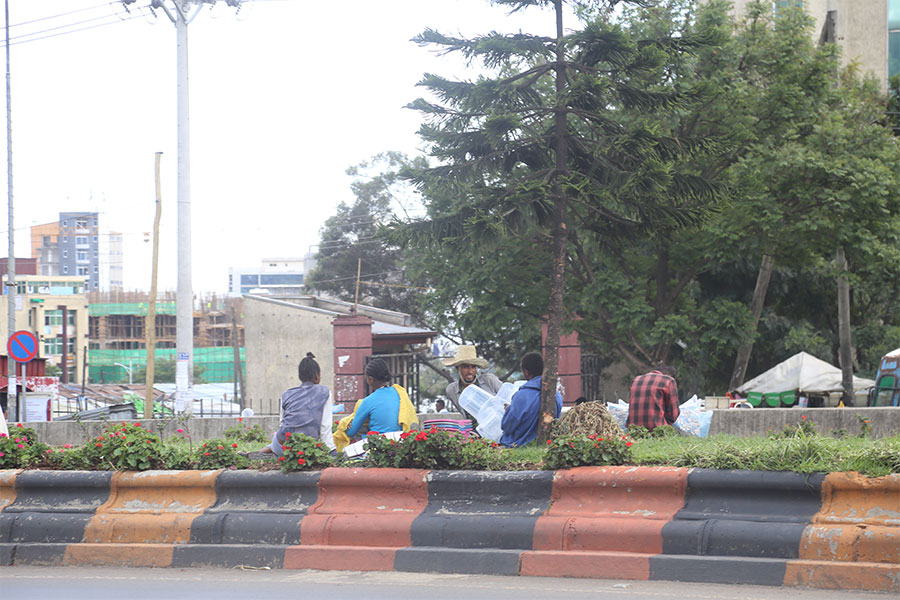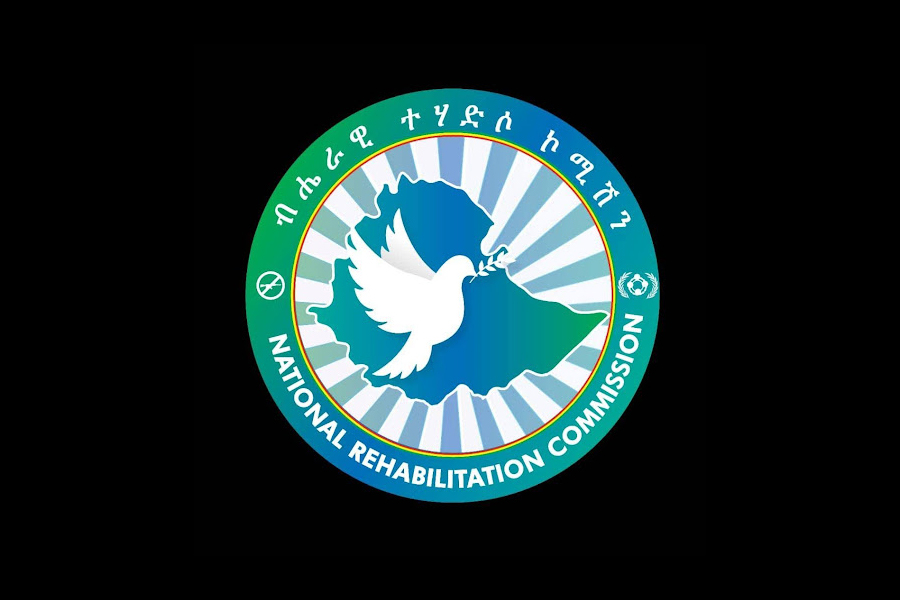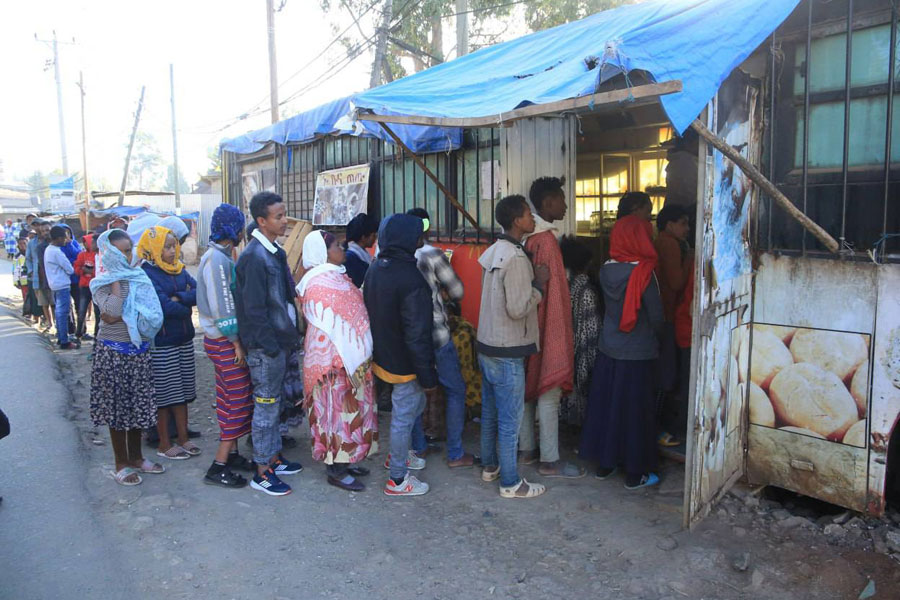
Delicate Number | Sep 01,2024
The traditional tattoos in the shape of a cross on her chin and forehead tell a story. It is not much of a leap to guess from the intricate markings that Feleku Kassa, 29, was raised in rural Ethiopia.
She was sitting in a medical recliner, wearing a rather uncomfortable expression, as she listened to a nurse, Selam Hailemichael. Feleku was attentive, receiving an orientation about a treatment she would get that day. She was anxious about what would happen afterwards. The nurse was preparing her for a rather unusual medical treatment at the Marcia Surgical Centre, in the Olympia area behind Dember City Centre.
Feleku was to undergo a laser tattoo removal procedure.
"It'll all be over in a few minutes," Selam, a nurse for seven years, told Feleku.
It was apparent from her tone she meant to have comforting words for her patient.
Donning a pair of glasses to protect her eyes from radiation, Selam began the removal process by focusing on Feleku's skin with highly concentrated light waves that heat the ink particles. It causes them to fragment into smaller pieces. Usually, patients' immune system does the rest, removing the remaining particles on its own.
The markings on Feleku's face are prints from a past Feleku wish to distance herself from. She was raised in the southwestern part of the country, in the vicinity of Jimma. She lived there until she moved to Addis Abeba 15 years ago. Blending into urban life has not been easy for her. The tattoos have been a big reason why. For a rural woman, tattoos could send a message to urban society: "I am not one of you."
Until recently, Feleku did not doubt her tattoos were a permanent feature she would have to live with for the rest of her life. She had no inkling that laser technologies have evolved to make tattoo removal a relatively quick and simple procedure. The treatment has been available in Ethiopia for some time now.
When Tewodros Messele (MD) established ICON Clinic in Addis Abeba after returning from the United States in 2006, where he practised plastic and reconstructive surgery, he hoped to offer an option to people like Feleku. They face an enduring sense of isolation from the community around them.
Tewodros, a Stanford University graduate, had been practising general and vascular surgery for nearly a decade before opening Marcia Surgical Centre six years ago. He began offering tattoo removal procedures with the help of two nurses trained for the job. The team has since expanded to comprise four nurses. Selam is one performing the procedure since 2018. Marcia Surgical Centre has since grown to include hair transplant and restoration procedures on its list of services.
Business is booming, according to the clinic’s administration.
The number of people who come to Marcia for tattoo removal has jumped from less than 50 a month in the early days to more than 200. Removing a tattoo takes about a year, with appointments every six to eight weeks. The procedure takes no longer than a quarter of an hour, often less, depending on the tattoo's size and depth. In most cases, tattoos require between five and 10 treatments for complete removal, with the ink fading with every appointment.
Marcia Surgical Centre charges between 200 and 5,000 Br for each appointment. A patient like Feleku would have to pay 10,000 Br throughout the treatment. The burden is not light on her. She earns a 3,000 Br monthly income working as a cook at a small eatery. However, she is determined to spend what she saves to see her tattoos removed completely.
The growing demand has spurred others to join the industry.
Incorporated in 2005, Rank Specialised Dermatology Clinic began offering tattoo removal treatment last year at its facility in the Lebu area. The growing number of people booking the procedure led the clinic's administration to recently open a second branch in Wello Sefer. On average, 75 people visit the clinic each month, disclosed Anise Befekadu (MD), a dermatologist at Rank Specialised Clinic.
The clinic charges an average 600 Br for a single session, with the entire procedure costing up to 10,000 Br.
Women from rural Ethiopia with plans to travel to the Middle East are the clinic's leading clients. Yet, the growing popularity of tattoo removal clinics matches the high prevalence of “tattoo regret”, a phenomenon that arises from ageing and changes in lifestyle and attitude.
Tattooing has grown increasingly popular, particularly among the youth, over the past decade. Traditional practice and religious marks restricted to women, tattoos have become part of the mainstream popular culture in the capital. It is no longer uncommon to see young men and women with ink on their arms, legs, and chests. Traditional crosses and dotted lines have been replaced with images, and the practice has shed the taboo it had initially been greeted with.
Nonetheless, with the growing appetite for tattoos also comes regret. The second-guessing has been a windfall for the tattoo removal business as the initial markings kept the lifeline of tattoo shops.
Befekadu Berihun, 22, got his favourite football club's logo and name tattooed on his neck and right hand five years ago. It was an impulsive decision at 17 when he was still a high school student. He had walked into the tattoo parlour and got inked without a second thought. Over the years, Befekadu's pride over his tattoos has evolved into regret. His remorse has grown since graduating from an accounting programme at Haromaya University two years ago.
"One of the common questions I'm asked during job interviews is why I got the tattoos," he said.
In hopes of improving his chances in a cutthroat job market, Befekadu removed his tattoos last year.
Befekadu's story is not uncommon in Ethiopia or the rest of the world. Kenneth Research, a consulting firm based in New York, projects the global market for removals, including procedures performed by dermatologists, medical spas and laser technicians, to grow to 4.8 billion dollars next year. North America comprises the largest market share.
The industry boom comes down mainly to technological advancements, which have made the treatment more efficient and affordable. In recent years, new types of lasers have enabled practitioners to remove virtually any kind of tattoo. But not all people who provide the treatment are medical professionals.
Henok Tilahun joined the tattoo business seven years ago. His tattoo parlour is among many that have sprung up to leverage the hot trend in Addis Abeba. Near Mexico Square, Henok's business has been booming. Last year, he began offering tattoo removal services alongside his regular work after he witnessed a growing desire to remove. Those who come to him for removals are his former clients, who had once walked into his parlour to get inked.
Henok charges a minimum of 1,000 Br for a single removal session. He sees up to 10 clients a month. The demand is so high that he does not have to promote his tattoo removal procedure to attract business. There are no training facilities to teach aspiring tattooists in the capital, and many like Henok grew into the business through sheer experience. Good sketching skills and a little experience creating designs are all one needs to qualify as a tattoo artist.
The same applies to tattoo removal. In developing countries, where very few dermatologists specialise in laser removal, the practice is open to people like Henok.
Still, tattoo parlours are subject to health and safety guidelines. Authorities inspect facilities and equipment before granting permits, but the assessment does not apply to the training or qualifications of the tattoo artists. Officials say most of the medical equipment used to remove tattoos is brought into the country without following proper customs procedures, often due to the small size of the machinery.
The Ethiopian Food & Drug Authority is the federal agency tasked with issuing import permits to ensure drug safety, quality, efficacy, and medical equipment. In the past three years, only three pieces of laser-based tattoo removal equipment have been imported under its supervision. The Ethiopian Radiation Protection Authority (ERPA) is also mandated to control and supervise the introduction and conduct of any practice involving sources of ionizing radiation. Its director for inspection, Salemariam “Tafesse”, sees most tattoo removal laser equipment is imported illegally.
Although few, there are side effects of laser-based tattoo removal treatment, according to Shimeles Negussie (MD), a dermatologist who has been working at Alert Hospital for over 13 years.
“Patients may experience slight bruising and redness following treatment," he said.
However, the most significant side effect of the treatment comes in the long run, says Shimeles. There is a slight chance that the treatment can lead to skin infections, while the procedure is not recommended for people with diabetes and high blood pressure.
“The risk increases as the procedure is performed with unchecked medical equipment,” said the expert.
Such risks, however, do not deter people like Feleku, who are determined to have their body art removed in hopes of improving their social status.
After receiving a five-minute-long treatment at Marcia Surgical Center, Feleku went home in good spirits.
“I'll be back next month,” she said.
Editor’s Note: An error on the last name of ERPA’s director of inspection has been corrected to “Tafesse” from “Tesfaye”.
PUBLISHED ON
Jul 09,2022 [ VOL
23 , NO
1158]

Delicate Number | Sep 01,2024

Fortune News | Apr 03,2023

Radar | Oct 08,2022

Radar | May 27,2023

Fortune News | Sep 15,2025

Radar | Sep 14,2024

Radar | Feb 24,2024

Fortune News | Feb 08,2020

Radar | Jun 30,2024

Agenda | Feb 18,2023

Dec 22 , 2024 . By TIZITA SHEWAFERAW
Charged with transforming colossal state-owned enterprises into modern and competitiv...

Aug 18 , 2024 . By AKSAH ITALO
Although predictable Yonas Zerihun's job in the ride-hailing service is not immune to...

Jul 28 , 2024 . By TIZITA SHEWAFERAW
Unhabitual, perhaps too many, Samuel Gebreyohannes, 38, used to occasionally enjoy a couple of beers at breakfast. However, he recently swit...

Jul 13 , 2024 . By AKSAH ITALO
Investors who rely on tractors, trucks, and field vehicles for commuting, transporting commodities, and f...

Oct 25 , 2025
The regulatory machinery is on overdrive. In only two years, no fewer than 35 new pro...

Oct 18 , 2025
The political establishment, notably the ruling party and its top brass, has become p...

Oct 11 , 2025
Ladislas Farago, a roving Associated Press (AP) correspondent, arrived in Ethiopia in...

Oct 4 , 2025
Eyob Tekalegn (PhD) had been in the Governor's chair for only weeks when, on Septembe...